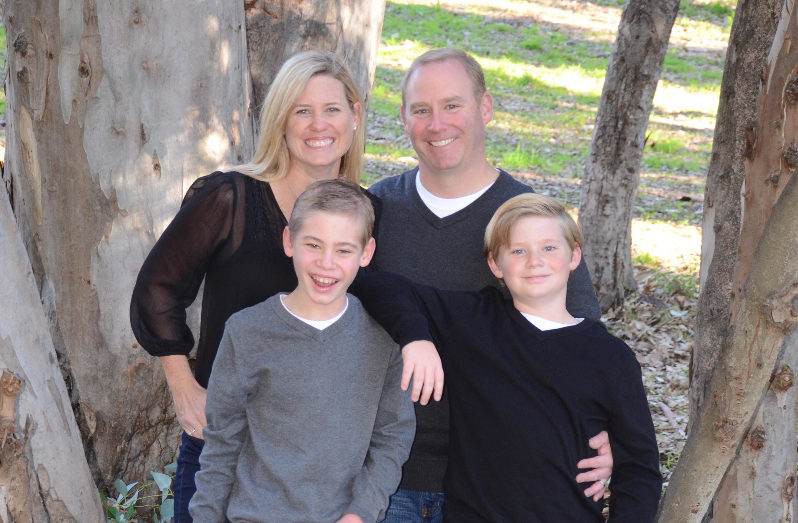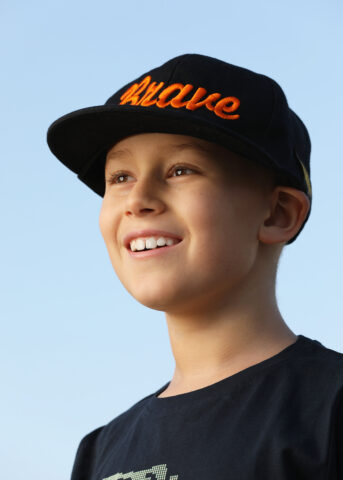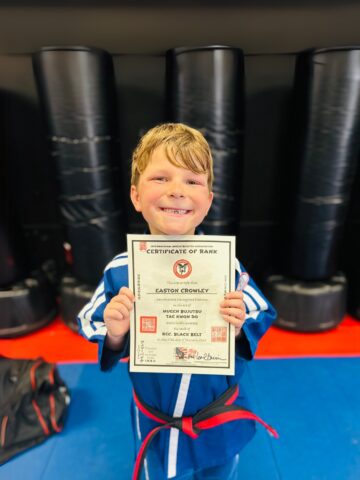The spread inside a conference room in the CHOC neuroscience unit would be a welcomed sight for any parent: a box of glistening bagels, jugs of steaming coffee, and a warm smile from Kathy Lear.
Whether it’s by offering nourishment or a kind word of encouragement, Kathy stands ready to help a fellow parent of a child contending with epilepsy or other complications.
“We’re trying to do these breakfasts once a week,” she says. “It’s nice to help out.”
After all, it’s a journey that Kathy’s intimately familiar with.
After her son Matthew’s typical birth and toddlerhood, signs that something was amiss appeared in kindergarten. Suddenly, Matthew would start ignoring his parents. Thinking it odd, they made an appointment with the pediatrician.
But before the appointment rolled around, Matthew’s school called one afternoon. Administrators were concerned that he had experienced an absence seizure – a type wherein someone suddenly stares off into space.
At CHOC, an electroencephalogram confirmed that Matthew was indeed d having seizures. He was diagnosed with epilepsy on Halloween 2008, just days before his sixth birthday.
Matthew began care under Dr. Mary Zupanc, director of CHOC’s pediatric comprehensive epilepsy program. The years that followed would be marked by a series of attempts to control Matthew’s seizures, including antiepileptic medication, a special diet and two epilepsy surgeries.
The epilepsy surgeries were palliative procedures, which would partially control the seizures, but not cure the epilepsy or stop all of the seizures. Inevitably, the seizures, although less frequent and less severe, would start again.
Ultimately, Dr. Zupanc recommended implantation of a new type of vagus nerve stimulation device, which sends electrical signals to Matthew’s brain to stop the seizures. Implanted by CHOC neurosurgeon Dr. Joffre Olaya, the device has brought relief to Matthew and his family.
“It disrupts any seizures that might be starting,” Kathy says. “It’s caused a dramatic increase in his ability to respond to us. It has made just a world of difference.”

Matthew now has quarterly visits to the hospital. Now 13, Matthew is doing well, attending special education classes in middle school, and participating in several sports through a recreational league.
“He’ll never be off his medication, but we do hope that we might have seizure freedom again,” Kathy says. “He’ll never not have to deal with epilepsy.”
Between his surgeries, seizure monitoring and other visits, Matthew’s time in the hospital totaled at least six months, Kathy estimated. And without the support of their family, friends and community, the journey would have been nearly impossible for the Lear family, Kathy says.
“We as a family couldn’t have done it without the support of our family and friends,” she says. “It really does take a village. Between bringing us meals, visiting in the hospital, coming back and forth to sports practices – just little things like that really helped.”
That support network has also helped give Kathy the time to make it a priority to help others who are also dealing with epilepsy.
She’s a parent representative on one of CHOC’s clinical practice councils, which help evaluate and improve patient care. Kathy also serves on CHOC’s Family Advisory Council, a diverse group of adult family members who meet regularly to provide input on decisions, initiatives and discussions.
That role brought her to the recent breakfast in the neuroscience unit. Made possible by a grant, the spread is hosted by CHOC’s Patient- and Family-Centered Care team, which supports CHOC’s philosophy that patients and families are part of the care team.
The breakfasts are designed to offer support and comfort to families who find themselves on the unit for days at a time, often while their children are undergoing testing or experiencing other complications.
“Sometimes it’s as simple as parents asking where they can find toothpaste. I tell them that we can definitely help,” Kathy says with a laugh.





